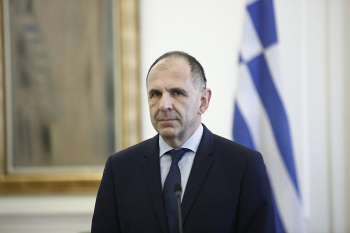
German Foreign Minister Annalena Baerbock on Thursday dismissed a proposal to suspend the European Union's political dialogue with Israel. The proposal, introduced earlier
this week by Josep Borrell, the EU's High Representative for Foreign Policy, aimed to address concerns over Israel's actions in Gaza.
Borrell's suggestion was intended as a warning that Israel may have crossed a "red line" for Europe with its conduct in the ongoing conflict. “Reports from independent international agencies suggest that Israel is violating human rights and international humanitarian law,” a diplomatic source told Belga.
EU-Israel Relations Under Scrutiny
The EU and Israel have maintained regular political dialogue as part of the EU-Israel Association Treaty, effective since 2000. This treaty explicitly states that the relationship is founded on respect for human rights and democratic principles.
Limited Support for Proposal
The proposal to suspend political dialogue will be discussed at a meeting of EU foreign ministers on Monday. However, diplomats note that suspending dialogue would not mean terminating the association treaty itself. Despite this, the proposal faces slim chances of approval.
“We always advocate for keeping channels of dialogue open, including with Israel,” Baerbock stated on Thursday. Her ministry emphasized that political dialogue serves as an essential platform for addressing issues such as adherence to international humanitarian law and facilitating humanitarian aid to Gaza.
Opposition from Key EU Members
For Borrell's proposal to pass, it requires unanimous approval from all 27 EU member states. Germany's opposition appears to make this outcome unlikely. Additionally, Israel enjoys strong support from Hungary and the Czech Republic, two of its closest European allies.
Despite the low likelihood of adoption, EU sources suggest that even initiating this discussion sends a significant political signal.
A Final Act for Borrell
This proposal may mark Borrell's last significant move as an EU official. Once the new European Commission is approved, he is set to be succeeded by former Estonian Prime Minister Kaja Kallas. Foto: Gerd Seidel, Creative Commons CC-by-sa-3.0 de, Wikimedia commons.

















